Champions of Change Blog
North Dakota State University Disaster Phone Apps
Posted by on October 17, 2013 at 1:40 PM EDT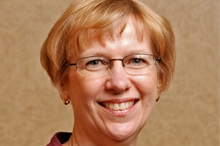
Becky was recognized as a White House Champion of Change in Community Resilience and Preparedness.
The North Dakota State University Extension Service provides research-based education to help people improve their lives and communities. Programs focus on agriculture and natural resources, family and consumer sciences, 4-H youth development and community vitality. Disaster preparedness and recovery work is included in all of those subject matter areas.
In 2011, when smartphones first became popular and North Dakota was dealing with another flood, the NDSU Ag Communication staff brainstormed ways to use smartphones to educate people and support disaster preparedness and recovery.
That same day, an article in the local newspaper featured a startup company that had developed a phone app to inform local people about river levels and flood news. Myriad Devices, at the time, was a small startup in the NDSU Research and Technology Park incubator, formed when undergraduate students believed in the idea that mobile networks were the future. Myriad and NDSU Ag Communication immediately connected and have worked together on two disaster education phone apps so far.
The Winter Survival Kit app will help you find your current location, call 911, notify friends and family, calculate how long you can run your vehicle’s engine to keep warm, and learn how to stay safe from carbon monoxide poisoning if you are stranded. The Winter Survival Kit will alert you every 30 minutes to remind you to turn off the engine periodically and check your exhaust pipe for snow buildup. These alerts are critical in helping avoid deadly carbon monoxide poisoning. The Winter Survival Kit also provides NDSU Extension Service information on how to put together a physical winter survival kit and prepare your vehicle for winter driving, and how to stay safe when stranded in a winter storm.
The Disaster Recovery Log app helps you record and recover from damage caused by flooding or other disasters by capturing photos to illustrate the flood damage. You can key in descriptions of damaged items or use the smartphone’s voice recorder to record a description of the damage. These details and photos can be exported for possible insurance and/or government reimbursement.
The Disaster Recovery Log also provides NDSU Extension Service information on how to clean or deal with flood-damaged appliances and electronics; carpets and floors; clothing and fabrics; food; furniture; gardens and landscapes; home structures; household items; mold; papers, books and photos; and water.
The two apps have more than 70,000 downloads. They are free – Winter Survival Kit for Android and iOS, and Disaster Recovery Log for Androids – and were funded with USDA National Institute of Food and Agriculture Smith-Lever Special Needs grants.
Since the 2011 release of these two disaster education apps, they have been promoted through social media, the Extension Disaster Education Network, other disaster agencies and organizations, and in many other ways. In the two years, Myriad Devices has grown exponentially and is recognized as a mobile technology leader, creating smartphone tools for businesses nationwide.
Becky Koch is the Agriculture Communication Director at North Dakota State University.
Learn more aboutYouth Are Getting Us Prepared
Posted by on October 17, 2013 at 1:36 PM EDT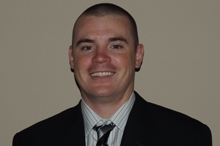
Joe was recognized as a White House Champion of Change in Community Resilience and Preparedness.
My name is Joe McKenna, and I grew up in Boston, Massachusetts, but now call San Marcos, Texas my home. How we think about individual and community preparedness today needs to be comprehensive in nature, and we should strive to engage the entire community in the discussion. Therefore, true preparedness should reflect a whole community approach. This approach includes promoting youth of all ages and abilities to get involved in appropriate preparedness actions and activities. The earlier we instill such behaviors and concepts in our youth, the better prepared our communities will be over time. Often, youth may even have great ideas that adults might never have considered, and thus could influence others in their community through natural innovation and creativity. Throughout history, young people have been a catalyst for change (i.e., seat belts, healthy eating, etc.) and a similar approach can be utilized in preparedness efforts. With youth comprising approximately one-fourth of our nation’s population, the sheer numbers make this population imperative to preparing communities. As such, we should take a vested interest in engaging youth in preparedness efforts.
The mission of the Texas School Safety Center’s Youth Preparedness Camp is to increase emergency preparedness in Texas communities by providing youth with emergency response, action planning, and leadership skills that enhance their capacity to assist their local communities in creating a culture of preparedness. As the coordinator of the Texas School Safety Center’s Youth Preparedness Camp, I have the unique opportunity to interact and support youth as they apply their amazing minds to help increase preparedness in their local communities. Our ultimate goal is to educate and prepare whole communities through their youth. Specifically, we provide trainings on preparedness, disaster response, and leadership. In turn, the youth will return home with the skills and desire to educate and prepare the rest of their local community. The youth deliver and conduct campaigns and activities that raise awareness about local hazards and preparedness practices, but also encourage members of the public to take action and prepare themselves and their families. This model creates a culture of preparedness within the local community that is both all-inclusive and sustainable.
Whether your community is currently active in youth preparedness or not, I encourage you to look to your young people for innovative and creative ways to increase whole community preparedness and utilize their natural talents and skills. After all, we share the communities we live in with our youth, so they too should be involved in preparing our communities for the future.
Joe McKenna is a Research Specialist and the Youth Preparedness Camp Coordinator for the Texas School Safety Center, which is part of Texas State University.
Learn more aboutClosing the Opportunity Divide
Posted by on September 27, 2013 at 12:55 PM EDT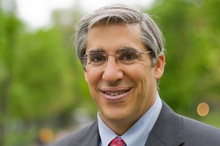
Gerald Chertavian is being honored as a Youth Jobs+ Champion of Change for his innovative work to develop the discipline and skills associated with employment for our country’s youth.
When Martin Luther King gave his iconic “I Have a Dream” speech fifty years ago, the event’s full title was “The March on Washington for Jobs and Freedom.” That full name, often overlooked in the years since, was selected with purpose. Dr. King and other leaders saw economic opportunity and self-sufficiency as an essential element of human freedom and the American promise. They also understood that businesses, and all Americans, suffered when the collective talents and purchasing power of an entire cohort of Americans – not only African-Americans, but people of all races from disadvantaged backgrounds – went largely unrecognized.
Indeed, employers today may be suffering from the Opportunity Divide more than ever before. In 2011, more than 30% of US employers had vacancies open for more than six months as they struggled to find qualified applicants, even in a time of high unemployment. There are good, family-supporting, middle-skills jobs being created in the 21st century economy, but not enough middle-skilled applicants to fill them.
Meanwhile, 6.7 million young Americans are out of school and out of work. Each of them costs taxpayers an average of $14,000 in social expenses and lost revenues for every year that they remain disconnected from career pathways. Unfortunately, there are some that believe that investing in training for undereducated, underemployed young adults has low returns, but these are smart, talented, and perseverant individuals, with enormous potential to offer employers.
Year Up’s students and alumni are living proof. We partner with more than 250 leading employers – smart, innovative companies like Microsoft, Salesforce.com, and State Street – to provide a steady pipeline of diverse, skilled talent for high-demand positions. Talent like Jay Hammonds, who left college after one year due to financial constraints, and set his sights on securing a part-time job at Safeway before he found our program. Jay completed his Year Up internship at Facebook and is still there today as an Executive Support Technician, working closely with the company’s leadership on a daily basis. In fact, 84% of our alumni are working full-time or are in school within four months of graduation, and those who are working earn an average of $15/hour ($30,000/year for salaried employees), more than twice the federal minimum wage. With access to training and corporate networks, our students are EPIC: Empowered, Professional, In-demand by employers, and Career-ready.
If we shifted our perceptions to see talent like Jay’s in the face of every young adult struggling to pay for college or find a job, we would find the human capital to start filling millions of vacancies in this country and help our businesses to grow. That’s what Dr. King explained so well – that all of our freedom and economic wellbeing is tied to that of each other. That’s what he marched for.
Closing the Opportunity Divide remains one of the major movements of our time, but nowadays it’s happening off the street as much as on it. It’s happening in board rooms and offices around the country, as more and more employers lean into the future and understand the economic need to shift their perceptions and hiring practices. Fifty years on, we are still fighting to extend the freedom of opportunity to all Americans. More than ever, we cannot afford not to do so.
Gerald Chertavian is the Founder and CEO of Year Up. Year Up's mission is to close the Opportunity Divide by providing urban young adults with the skills, experience, and support that will empower them to reach their potential through professional careers and higher education.
Learn more aboutGreen City Force Bringing Youth and Jobs Together
Posted by on September 27, 2013 at 12:53 PM EDT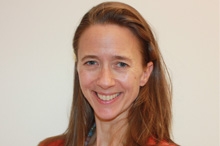
Lisbeth Shepherd is being honored as a Youth Jobs+ Champion of Change for her innovative work to develop the discipline and skills associated with employment for our country’s youth.
I believe in the boundless potential of young people. I believe that we need the energy, ideas, and talents of young adults from low-income communities of color as workers and leaders in building an inclusive, sustainable economy. I believe national service is an ideal vehicle through which to engage unemployed or underemployed young adults from these communities in addressing critical climate action goals while gaining skills and vision to get on a path to family-supporting work.
With these principles in mind, I founded Green City Force in 2009. GCF’s Clean Energy Corps combines national service, workforce development, and academics to propel young public housing residents to success in employment or college. We are national model for the Clean Energy Service Corps, created through the Serve America Act of 2009.
GCF creates training opportunities through services related to high-growth fields with entry-level opportunities accessible to young adults without advanced degrees. We have a unique, multi-faceted partnership with the New York City Housing Authority (NYCHA). With our partners, we build urban farms, engage public housing residents in building-to-building challenges to reduce energy and water consumption, expand green space, and help families affected by Hurricane Sandy. In our program, technical skills training in energy efficiency and urban agriculture are combined with transferable skills (outreach, data collection, interpersonal skills) to boost competitiveness and expand options for graduates. Corps Members help advance the goals of PlaNYC, the city’s climate action plan, and the public housing authority’s NYCHA Green Agenda goals. GCF helps them leverage these experiences to connect with employment or with school, and engages graduates in an ongoing community. Our graduates are energy auditors, food educators, landscapers, college students, and active community members.
This is a unique moment in our country. “Opportunity youth” like Shella Hair, a 24-year old from the Bronx, and Sha-kim Johnson, a 19-year old from Coney Island, have the energy and ideas to move our country forward. Addressing climate issues in measurable, innovative ways is urgent. Creating a ladder to opportunity for young adults who have achieved a high school diploma or GED but lack a viable next step is an imperative. At Green City Force, we're connecting these dots. It's time to expand national service as a platform for opportunity, pillar for resiliency and sustainable community development, and preferred pipeline for employers to create good jobs for youth across the country.
Lisbeth Shepherd is a serial social entrepreneur dedicated to creating opportunity for young adults through national service. A 1993 Echoing Green Fellow, Lisbeth founded the leading national service organization in France that inspired the Service Civique for 75,000 young people in France: Unis-Cité.
Learn more aboutInvesting in Philadelphia’s Future Through Our Youth
Posted by on September 27, 2013 at 12:50 PM EDT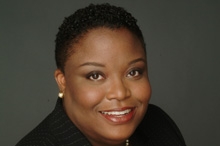
Stacy E. Holland is being honored as a Youth Jobs+ Champion of Change for her innovative work to develop the discipline and skills associated with employment for our country’s youth.
Daquan, a high school junior in Philadelphia, discovered a passion for the culinary arts through his summer internship this year working at a local restaurant. He worked behind-the-scenes in the kitchen, and as college approaches, Daquan is thinking of pursuing his newly found forte.
Sidney graduated high school this year and began her freshman year of college. She’s known for quite some time that she wants to work in healthcare, but this year’s summer internship provided her with access to professionals in the field offering valuable advice on how to reach her goals.
This summer, thousands of young people like Daquan and Sidney joined the workforce through WorkReady Philadelphia – a citywide, cross-sector partnership dedicated to improving the outcomes of the region’s youth by attracting, aligning, and investing resources in youth workforce-development.
These powerful stories of youth identifying and expanding their career aspirations through work experience are the very essence of why WorkReady was launched ten years ago. Since 2003, our city has been working to ensure that youth in the Philadelphia region have access to the academic, career and support services necessary to build bright futures and prepare them to be leaders in the workforce.
Recognizing that the future economic stability of Philadelphia is predicated on our youth’s ability to compete locally and globally, we are implementing unique solutions to grow and prepare young people for career and educational success. Our portfolio of summer and year-round WorkReady programs is designed to introduce participants to careers, develop their work-based knowledge, and serve as a catalyst for their education and career planning.
In particular, WorkReady summer experiences offer educationally-enriched work opportunities to in-school and out-of-school youth ages 14-21. Participants complete a six-week (120 hour), paid work experience that fosters the acquisition of 21st Century skills through work-based learning.
In Philadelphia, we fundamentally believe the job of developing our young people to be talented professionals of tomorrow is far too big to be the responsibility of any single institution or organization. It requires the community to work together in partnership to achieve that goal. Our community of government officials, educators, community-based organizations, funders, and employers work collaboratively to ensure that we not only prepare young people for future success, but to make the larger community, Philadelphia, a better place to live and work.
Moreover, along with our partners, WorkReady Philadelphia is driving change and creating a significant impact. Since 2003, we have:
- Put more than 86,000 youth to work in internships and training programs
- Raised more than $12 million in employer support for youth internships
- Infused more than $62 million into the local economy through wages paid to youth
- Facilitated on-the-job experiences for youth at over 1,000 worksites across the region
Our system is unique, but our motivation is simple. How can we provide more young people, like Daquan and Sidney, with transformative, career-connected opportunities? This is a movement that is designed to power the next generation and we are committed to not failing. Their lives depend on it.
Stacy E. Holland is the Co-Founder and Former President & CEO of the Philadelphia Youth Network. She will continue her work in advocating in preparing youth for college and career success in her new role as the Chief of Strategic Partnerships at the School District of Philadelphia.
Learn more aboutThe Positive Impacts of Education and Job Training on Urban Youth
Posted by on September 27, 2013 at 12:48 PM EDT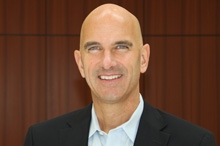
Jeff Tollefson is being honored as a Youth Jobs+ Champion of Change for his innovative work to develop the discipline and skills associated with employment for our country’s youth.
A common theme for teens growing up in low-income environments is the absence of an expectation for a more positive future. A sense of hopelessness can easily set in, leading otherwise promising youth to give up and far too often, drop out. Worse yet, they turn to unhealthy behaviors and activity, such as gang violence that challenges the safety of so many of our urban neighborhoods.
But what if these teens could envision a brighter future for themselves? What if they could see and experience what a professional career feels like, what it could afford them, and begin to see the relevance of education as a key to attaining high-paying jobs, while still in high school? What positive change could we catalyze?
At Genesys Works, we’ve seen what can happen – and it’s transformational. By providing low-income youth with the guidance, tools, resources, and economic opportunities that help them see a path out of poverty and into a world of financial stability and self-sufficiency, we can begin to replace feelings of hopelessness with a vision for a brighter future.
Our program model is simple, yet life-changing. In the summer before their senior year of high school, students undergo an intensive eight-week technical and professional skills “boot camp” where they learn and develop the skills needed to succeed in the next phase of our program – a meaningful year-long paid internship. Students then work nearly 1000 hours during their senior year as business-card-carrying young professionals at one of our corporate partners, supported and guided by caring mentors and supervisors. Succeeding in a professional job helps students see that there is a place for them in the corporate world, something they might not have thought possible until experiencing it for themselves. Many choose to further their education beyond high school as a result.
Of the 389 students that were trained and placed into meaningful internships in our first five years operating in the Twin Cities, all have graduated from high school with 97% enrolling in college. More importantly, 81% have either now graduated (we celebrated our first college graduates in June) or are still enrolled and on track to graduate. Given that our students come from low-income backgrounds with 96% students of color, we are particularly proud of these young men and women who are truly beating the odds, as the bachelor’s degree attainment rate is less than 10% nationally for the demographic we serve. This is real impact. This is real change. This is what drives us to do more.
The impact on individual student lives is clear. But what may be less obvious is the impact we can have on the broader communities we serve. Take, for example, the growing skills gap we face here in Minnesota. With highly skilled baby boomers leaving the workforce en masse over the next decade, we are faced with a next generation of workers that is far more diverse, and less prepared, than ever before. Schools and companies alike need to intervene to ensure that our youth develop the advanced skills needed to be successful in the modern workplace. Genesys Works serves as a bridge connecting students with opportunities, businesses with technology-proficient workers, and schools with a program providing relevant, real-world educational opportunities for urban teens.
By connecting youth with the right opportunities and support structures at the right time, we can begin to close the educational achievement and economic opportunity gaps that fragment so many segments of our population, and in doing so, make our communities a better place to live and work for all.
Jeff Tollefson serves as Executive Director of Genesys Works – Twin Cities, a non-profit organization helping economically disadvantaged high school students to enter and thrive in the economic mainstream by providing them the knowledge and work experience required to succeed as professionals.
Learn more about
- &lsaquo previous
- …
- 39
- 40
- 41
- 42
- 43
- 44
- 45
- 46
- 47
- …
- next &rsaquo
White House Blogs
- The White House Blog
- Middle Class Task Force
- Council of Economic Advisers
- Council on Environmental Quality
- Council on Women and Girls
- Office of Intergovernmental Affairs
- Office of Management and Budget
- Office of Public Engagement
- Office of Science & Tech Policy
- Office of Urban Affairs
- Open Government
- Faith and Neighborhood Partnerships
- Social Innovation and Civic Participation
- US Trade Representative
- Office National Drug Control Policy
categories
- AIDS Policy
- Alaska
- Blueprint for an America Built to Last
- Budget
- Civil Rights
- Defense
- Disabilities
- Economy
- Education
- Energy and Environment
- Equal Pay
- Ethics
- Faith Based
- Fiscal Responsibility
- Foreign Policy
- Grab Bag
- Health Care
- Homeland Security
- Immigration
- Innovation Fellows
- Inside the White House
- Middle Class Security
- Open Government
- Poverty
- Rural
- Seniors and Social Security
- Service
- Social Innovation
- State of the Union
- Taxes
- Technology
- Urban Policy
- Veterans
- Violence Prevention
- White House Internships
- Women
- Working Families
- Additional Issues

